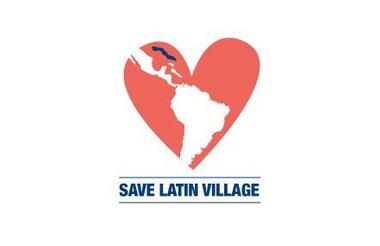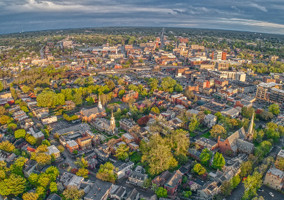In the heart of Shandy Park in Stepney, East London, lies a disused community centre. Evolving from a post-war boxing club for boys, the hall became home to the Arbour which, for decades, brought local residents together to participate in youth projects, English language lessons, community events and more.
Its walls breathe a history of community power and resilience; decorated in bomb damage, graffiti, and photographic mementos of times gone by. A space with such a rich past and such present potential, it tells the tell of a thousand like it across the country and begs the question, what would it mean for communities to have greater control over local spaces?
What would it be like if decisions about local services and spaces were made at the most local level possible, and with the participation of those involved? In this instance, would the Arbour centre still be open? Would the residents of Stepney still have a hub in which to create shared memories?
Power, autonomy, and identity connect to place
Through my work across the UK - both in my own activism, and with the community research and social innovation not-for-profit, The Young Foundation - I have seen how power, autonomy, and identity connect to place.
At Latin Village in North London, we find the intersection of all three. Home to the UK’s second largest Latinx population, Seven Sisters Indoor Market (aka Latin Village) has always been much more than a market. It is a hub for minority communities to come together and share culture, language, and mutual support.
For the past 17 years, local traders and residents have been fighting to protect Latin Village from regeneration initiatives and have developed a Community Plan that would not only renovate the historically-listed site on Wards Corner but would create a space designed with the needs of the local community at its core. I use the word fight here, because it has been an uphill struggle to mobilise, negotiate with local and national government, and navigate the legal system – despite backing from the press, the United Nations, and much of the wider community.
This is just one example of community power, because it takes power to act as a community. Often pitted against corporate or government bodies with more money, decision-making power, and time than local people, those taking action in their communities draw exclusively on their connections to one another, their energy, and their passion for the places and spaces they call home.
These energy supplies are not endless, and people are often exhausted and overruled by the decisions made by those less connected to a place, yet more powerfully positioned in our society.
Increasingly homogenous vision for London
Look to the lessons learned in London, from the redevelopment of Elephant and Castle or the decline of the night-time economy and of queer spaces in particular. We are seeing an increasingly homogenous vision for the city take hold, which may try to push out or dampen the diverse identities, cultures and people that make up England’s capital, but can never fully overpower the power of community.
If you ever need a reminder of that, check out the success of Friends of Joiners Arms in Hackney. Or Bender Defenders, who patrol London’s remaining queer spaces - showing power through visibility in the face of rising hate crime. Both are powerful examples of people taking action to protect themselves and their communities.
We’re Right Here: Campaign for Community Power
Yet what would the UK look like if rather than having to fight for it, local people were given the powers they need to shape the areas they live in? How swiftly would social, cultural and educational spaces be established or maintained? The We’re Right Here: Campaign for Community Power is stepping up to make these demands – and I am delighted that The Young Foundation is backing it.
Led by six community leaders from across England, the campaign calls for a Community Power Act which would make three things happen:
- it would give communities a legal right to self-determination, ensuring decisions about local services and spaces are made at the ‘most local’ level possible and with the participation of local people;
- it would create power-sharing agreements, giving community organisations and local people significant new powers in shaping and delivering services and community spaces;
- and it would establish an independent Community Power Commissioner, who would hold the government accountable for upholding communities’ right to self-determination.
My hope is that this Act and the wider campaign will create a platform to share the challenges and successes of community power, and serve as a reminder to turn to local people when looking for answers to local issues.
For me, it has been so important to access community hubs across London since I moved here ten years ago - from the joy of being surrounded by my queer community the first time I set foot in the Joiners Arms, to reconnecting with my east end heritage at the Arbour, and embracing the warmth of the Latin Village during my time as a proud resident of Tottenham.
It shouldn’t be the case that we only celebrate such spaces when they’re at risk. I want to see radical change, creating a reality in which the inspirational commitment of Friends of the Joiners Arms, Save Latin Village and other passionate community campaigning groups are enabled to deliver, protect and maintain the spaces and services local communities need.
Isabel Young is head of community programmes at The Young Foundation, the UK's home for community research and social innovation
Related articles











